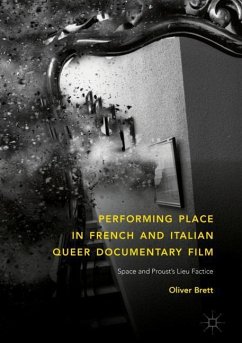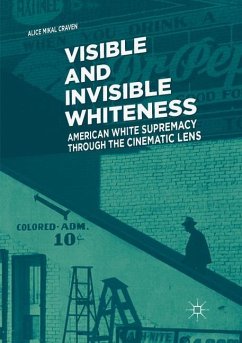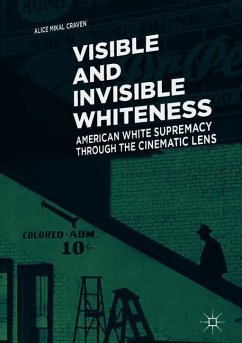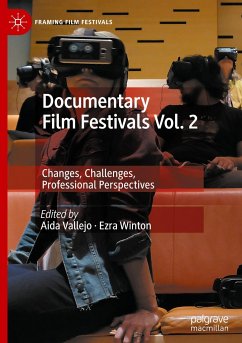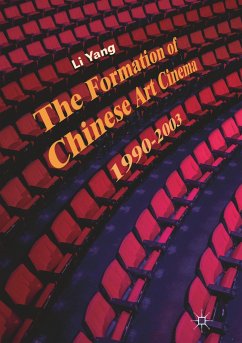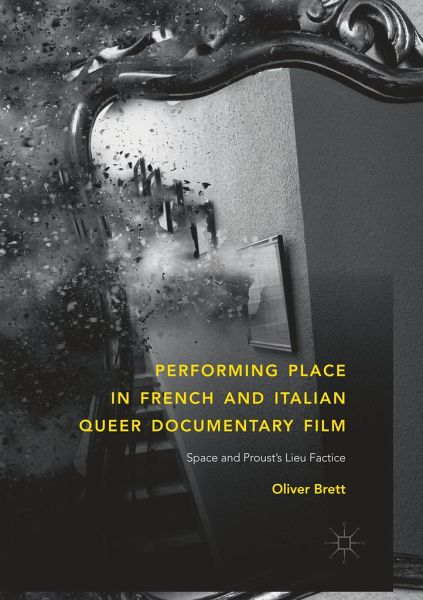
Performing Place in French and Italian Queer Documentary Film
Space and Proust's Lieu Factice
Versandkostenfrei!
Versandfertig in 6-10 Tagen
38,99 €
inkl. MwSt.
Weitere Ausgaben:

PAYBACK Punkte
19 °P sammeln!
This book explores the space of queer documentary through the modernist optic of Marcel Proust's 'lieu factice' (artificial place), a perspective that problematizes the location of place in a post-postmodern world with a dispersed sense of the real. The practice of queer documentary in France and Italy, from the beginning of the new millennium onwards, is seen to re-write the coherence of 'place' through a range of emerging queer realities. Proposing the post-queer as a way of contending with the spatial dynamics of these contexts, analysis of key texts positions place as mourned, conceded and...
This book explores the space of queer documentary through the modernist optic of Marcel Proust's 'lieu factice' (artificial place), a perspective that problematizes the location of place in a post-postmodern world with a dispersed sense of the real. The practice of queer documentary in France and Italy, from the beginning of the new millennium onwards, is seen to re-write the coherence of 'place' through a range of emerging queer realities. Proposing the post-queer as a way of contending with the spatial dynamics of these contexts, analysis of key texts positions place as mourned, conceded and intersectional. The performance of place as agency is considered through the notional film, the radical archive of documentary, the enactment of politics, queer indeterminacy and a phenomenology of the object, the frame and queer mobility. The central themes of family, gender, dis/location, in/visibility and re/presentation question blind investment in the integrity of being emplaced.



